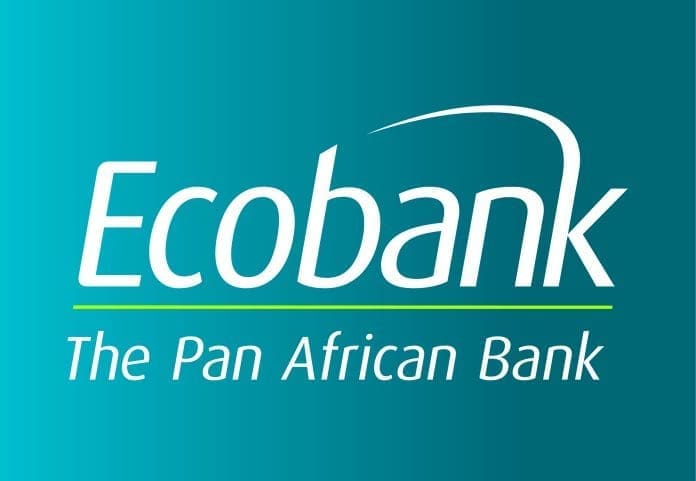
The United Arab Emirates’ (UAE) highest court has unanimously dismissed a 67.8 million United States (US) dollar lawsuit filed against Ecobank Transnational Incorporated by a commodities trading company and its chief executive.
The Dubai Court of Cassation rejected the final appeal by Wilben Trade Limited and Marcus Akroyd Wade on November 13, marking the third consecutive judicial defeat for the claimants across three levels of UAE courts. The ruling concludes a legal battle that began in December 2024 when the trading firm filed civil action seeking damages for alleged reputational harm and loss of profits.
Wilben Trade argued that criminal proceedings in Nigeria, initiated after Ecobank Nigeria reported suspected fraud to authorities, were malicious and constituted an abuse of their rights. The dispute originated from transactions related to parboiled rice trade between 2014 and 2015.
The Dubai Court of First Instance rejected the case on April 21, 2025, finding no misuse of rights or bad faith by Ecobank. The court held that claimants had not established the elements of liability required under UAE law. The Court of Appeal upheld that decision in full on September 29, 2025, relying partly on the claimants’ own expert evidence presented during proceedings.
The Court of Cassation, which represents the final level of judicial review in the UAE, reconfirmed those conclusions in its November 13 ruling. Together, the three decisions amount to what legal observers describe as a comprehensive failure of Wilben Trade’s legal strategy.
Ecobank maintained throughout proceedings that as a regulated financial institution, it acted appropriately by referring suspicious activities to Nigerian authorities rather than treating the matter as a routine commercial disagreement. The bank stated it followed standard protocols required of licensed financial institutions when potential fraud is detected.
The legal dispute stems from transactions between November 2014 and February 2015, when Ecobank Nigeria enlisted Wilben Trade to act as a financial intermediary for rice imports by another party. Ecobank issued letters of credit to Wilben Trade, which discounted them through banking partners. The arrangement involved two transactions worth 42.5 million dollars, with Wilben Trade earning fees of 83,797 dollars.
According to Ecobank, the cargo ships carrying the rice never arrived, resulting in substantial financial losses. The bank’s recovery arm, ETI (Ecobank Transnational Incorporated) Specialized Resolutions Company, subsequently filed a criminal complaint in Nigeria in 2022 accusing Wilben Trade and Wade of conspiracy and fraud linked to those transactions.
Wilben Trade has consistently denied wrongdoing and claimed the allegations were baseless. The company filed its Dubai lawsuit in December 2024, arguing that Ecobank’s actions damaged its reputation and business operations across multiple jurisdictions.
During the two year period leading to the Court of Cassation ruling, Wilben Trade and Wade conducted what Ecobank characterized as a negative media campaign linked to the trade finance dispute. The bank stated it chose not to engage publicly and instead relied on the UAE judicial system to assess allegations.
The November 13 verdict vindicates that strategy, according to Ecobank. The bank welcomed the decision and reaffirmed confidence in the strength and fairness of the UAE judicial system. Ecobank stated the ruling reinforces its commitment to upholding governance standards, compliance, and respect for the rule of law across all jurisdictions where it operates.
Legal experts note that the consistent rulings across three court levels, including from the UAE’s highest judicial authority, significantly strengthen Ecobank’s position. The Court of Cassation’s unanimous decision carries particular weight because it represents the final opportunity for appeal within the UAE legal framework.
The case highlights challenges faced by pan African financial institutions navigating complex cross border transactions and subsequent disputes. Ecobank, headquartered in Lomé, Togo, operates across 33 African countries and maintains correspondent banking relationships globally.
For Wilben Trade, the comprehensive judicial defeat in Dubai closes one avenue of legal action, though criminal proceedings in Nigeria reportedly remain ongoing. The company, which describes itself as active in agricultural commodity trade between the Middle East, West Africa, and Asia, has not publicly commented on next steps following the Court of Cassation ruling.
The verdict also addresses broader questions about institutional responsibility when financial irregularities are detected. UAE courts affirmed that reporting suspected fraud to relevant authorities, rather than handling such matters privately, constitutes appropriate conduct for regulated banks operating under strict compliance frameworks.
Ecobank Group, which manages assets exceeding 27 billion dollars across its network, has faced scrutiny over various commercial disputes in recent years. The bank maintains these cases reflect the complexity of operating at scale across multiple jurisdictions with varying legal and regulatory frameworks.
The Dubai ruling provides legal clarity on a dispute that generated significant attention within African banking and commodity trading circles. By upholding Ecobank’s position at every judicial level, UAE courts have validated the bank’s assertion that its actions were legally justified and commercially reasonable given the circumstances.
